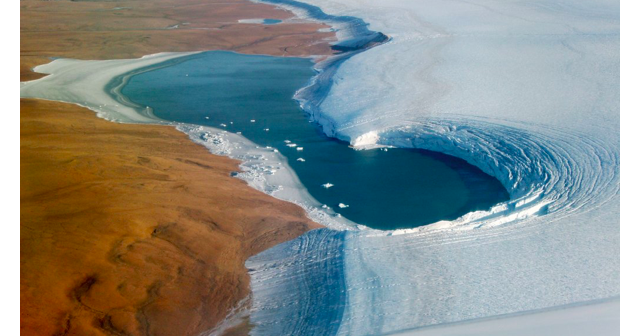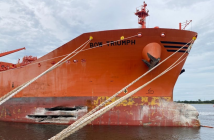WASHINGTON/ANCHORAGE (Reuters) – Climate change is causing chaos in the Bering Sea, home to one of America’s largest fisheries, an example of how rising temperatures can rapidly change ecosystems important to the economy, U.S. federal government scientists said in a report on Tuesday.
Rising temperatures in the Arctic have led to decreases in sea ice, record warm temperatures at the bottom of the Bering Sea and the northward migration of fish species such as Pacific cod, the U.S. National Oceanic and Atmospheric Administration, or NOAA, said in its 2019 Arctic Report Card.
While the changes are widespread in the Arctic, the effect on wildlife is acute in the eastern shelf of the Bering Sea, which yields more than 40% of the annual U.S. fish and shellfish catch.
“The changes going on have the potential to influence the kinds of fish products you have available to you, whether that’s fish sticks in the grocery store or shellfish at a restaurant,” said Rick Thoman, a meteorologist in Alaska and one of the report’s authors.
The warning was the latest from a U.S. government agency about climate change even as President Donald Trump has voiced skepticism about global warming and pushed to maximize production of oil, gas and coal. Last month his administration filed paperwork to withdraw the United States from the 2015 Paris agreement on climate change.
The report identified a decrease in recent years in the Bering Sea “cold pool,” which used to be a dependable mass of very salty frigid water down to the sea floor that functioned as a natural fence separating fish species. That has likely caused a shift in distribution of walleye pollock and Pacific cod, the report said.
No cold pool was found in 2018 and this year it was smaller than normal, it said.
Fish stocks are scrambled, with some species moving north. Crab fishermen in Nome have reported catching more cod than crabs, as Pacific cod are not doing as well south of there. Last week, the North Pacific Fishery Management Council shut down the 2020 Pacific cod harvest in the Gulf of Alaska.
“It’s heartbreaking,” said Simon Kinneen, the chairman of the North Pacific Fishery Management Council. Cod stocks have been hard hit by successive heat waves in the Gulf of Alaska, fishery scientists say. Read more:




